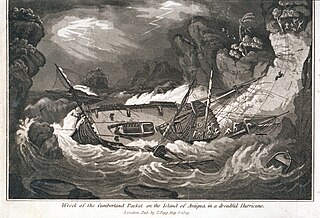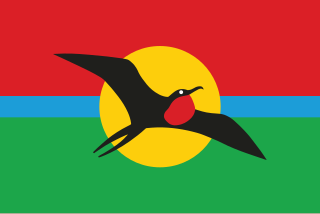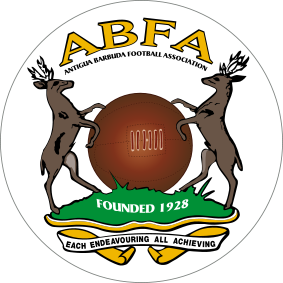Related Research Articles

Antigua and Barbuda is a sovereign archipelagic country in the Caribbean. It lies at the conjuncture of the Caribbean Sea and the Atlantic Ocean in the Leeward Islands part of the Lesser Antilles.

The politics of Antigua and Barbuda takes place in a framework of a unitary parliamentary representative democratic monarchy, wherein the sovereign of Antigua and Barbuda is the head of state, appointing a governor-general to act as vice-regal representative in the nation. A prime minister is appointed by the governor-general as the head of government, and of a multi-party system; the prime minister advises the governor-general on the appointment of a Council of Ministers. Executive power is exercised by the government. Legislative power is vested in both the government and the two chambers of the Parliament. The bicameral Parliament consists of the Senate and the House of Representatives.

The history of Antigua and Barbuda covers the period from the arrival of the Archaic peoples thousands of years ago to the present day. Prior to European colonization, the lands encompassing present-day Antigua and Barbuda were inhabited by three successive Amerindian societies. The island was claimed by England, who settled the islands in 1632. Under English/British control, the islands witnessed an influx of both Britons and African slaves migrate to the island. In 1981, the islands were granted independence as the modern state of Antigua and Barbuda.

Barbuda is an island and dependency located in the eastern Caribbean forming part of the twin-island state of Antigua and Barbuda as an autonomous entity. Barbuda is located approximately 30 miles (48 km) north of Antigua. The only settlements on the island are Codrington and its surrounding localities. Barbuda is a flat island with the western portion being dominated by Codrington Lagoon, and the eastern portion being dominated by the elevated plateau of the Barbuda Highlands, with salty ponds and scrubland spread throughout the island. The climate is classified as tropical marine.

Sir Vere Cornwall Bird, KNH was the first Prime Minister of Antigua and Barbuda. His son, Lester Bryant Bird, succeeded him as prime minister. In 1994, he was declared a "National Hero".

The national flag of Antigua and Barbuda was adopted on 27 February 1967 to mark the achievement of self-government. A competition to design the flag was held in which more than 600 local people entered. The winning design was put forth by nationally well-known artist and sculptor Sir Reginald Samuel.

The prime minister of Antigua and Barbuda is the head of government of the Antigua and Barbuda. The prime minister of Antigua and Barbuda is appointed by the Governor-General under the terms of the Constitution.

The coat of arms of Antigua and Barbuda was designed in 1966 by Gordon Christopher. It was officially introduced on 16 February 1967. The symbolism of the arms is more complex than that found on the flag of Antigua and Barbuda, but many elements are similar.

Elections in Antigua and Barbuda take place in the framework of a parliamentary democracy.

The Antigua and Barbuda national football team is the national team of Antigua and Barbuda.

Antigua, also known as Waladli or Wadadli by the local population, is an island in the Lesser Antilles. It is one of the Leeward Islands in the Caribbean region and the most populous island of the country of Antigua and Barbuda. Antigua and Barbuda became an independent state within the Commonwealth of Nations on 1 November 1981.

The Senate is the upper house of the Parliament of Antigua and Barbuda. The Senate and the lower chamber, the House of Representatives, together form the bicameral legislature of Antigua and Barbuda. The Senate and the House together may make laws for "the peace, order and good government of Antigua and Barbuda". Any bill other than a money bill may be introduced in the Senate.

The monarchy of Antigua and Barbuda is a system of government in which a hereditary monarch is the sovereign and head of state of Antigua and Barbuda. The current Antiguan and Barbudan monarch and head of state, since 8 September 2022, is King Charles III. As sovereign, he is the personal embodiment of the Crown of Antigua and Barbuda. Although the person of the sovereign is equally shared with 14 other independent countries within the Commonwealth of Nations, each country's monarchy is separate and legally distinct. As a result, the current monarch is officially titled King of Antigua and Barbuda and, in this capacity, he and other members of the Royal Family undertake public and private functions domestically and abroad as representatives of Antigua and Barbuda. However, the King is the only member of the Royal Family with any constitutional role.

The Antigua and Barbuda Football Association is the governing body of football in Antigua and Barbuda. They control the Antigua and Barbuda national football team.

The following outline is provided as an overview of and introduction to Antigua and Barbuda:

Antigua and Barbuda maintains diplomatic relations with the United States, Canada, the United Kingdom, and the People's Republic of China, as well as with many Latin American countries and neighbouring Eastern Caribbean states. It is a member of the United Nations, the Commonwealth of Nations, the Organization of American States, the Organisation of Eastern Caribbean States, the Bolivarian Alliance for the Americas, Petrocaribe and the Eastern Caribbean's Regional Security System (RSS).
Antigua was discovered by Christopher Columbus, in 1493, and was named after the church of Santa Maria la Antigua in Seville. It was first settled in 1632. By the Treaty of Breda in 1667 it became a British Possession.

The high commissioner of India in Georgetown, Guyana is concurrently accredited to Antigua and Barbuda. Antigua and Barbuda maintains an honorary consulate general in New Delhi.
The 2nd legislature of Antigua and Barbuda was elected on Thursday, 1 November 1956, and was dissolved on Saturday, 29 October 1960.

This article covers the history of the Presidency of Antigua from 1871 until 1958. During this period, Antigua was a presidency part of the British Leeward Islands, also including the islands of Barbuda and Redonda. During this era, universal suffrage was established, and local government thrived. In 1958, Antigua joined the West Indies Federation.
References
- ↑ "Caribbean Elections | Members of the Legislative Council of Antigua and Barbuda 1951 - 1956". www.caribbeanelections.com. Retrieved 2022-04-10.